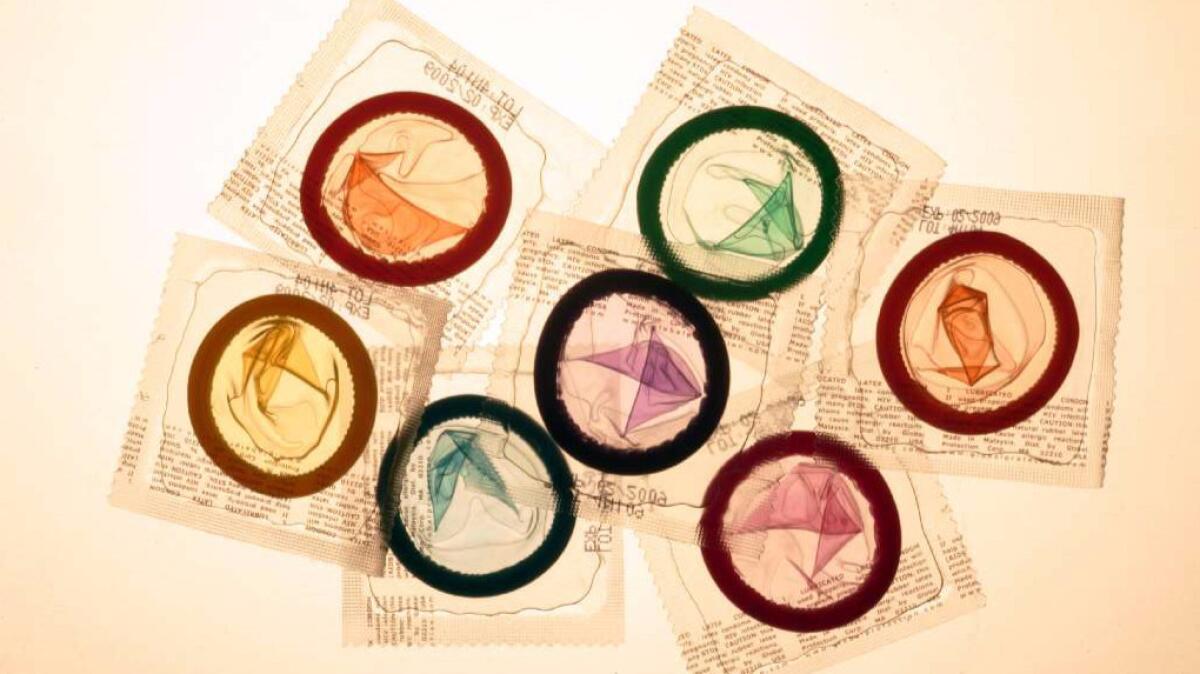Safe sex without condoms? With drugs keeping HIV in check, infected partners didn’t spread virus

One of the surest ways to prevent the spread of HIV is to use condoms during sex. But that doesn’t always happen, especially when medicines are keeping the virus at very low levels.
Is this safe?
Health experts are divided on the question. In 2008, a national commission in Switzerland gave HIV-positive adults the go-ahead to have unprotected sex as long as they were taking antiretroviral drugs, and those drugs had kept their viral load “undetectable” – that is, below 40 copies per milliliter of blood – for at least six months. (A third requirement was that people have no other infections that could be spread through sex, such as gonorrhea or syphilis.)
But plenty of doctors remained skeptical. Health officials in the U.S. advise HIV-negative people to “use condoms consistently and correctly” if their partners are HIV-positive.
To get a better idea of the risks, an international group of researchers studied hundreds of couples made up of one partner that had HIV and one that didn’t. All of the HIV-positive volunteers had viral loads below 200 copies per milliliter of blood, thanks to antiretroviral drugs.
The researchers didn’t ask the couples to have sex without condoms — on the contrary, volunteers who were HIV-negative were warned that they could become infected through unprotected sex. To emphasize the point, every time they checked in with the research team, study participants were advised to use condoms.
But 888 couples went ahead and skipped condoms anyway. And they did so quite often.
Couples comprised of an HIV-positive woman and an HIV-negative man had unprotected sex a median of 35 times per year. Couples in which the roles were reversed said they had unprotected sex a median of 36 times per year. Among male couples, participants reported a median of 42 acts of unprotected sex per year.
The study participants told researchers they threw caution to the wind because they thought their risk of spreading HIV was low (a belief expressed by 52% of heterosexual women, 57% of heterosexual men, and 63% of men who had sex with men). Another popular explanation was that sex felt better without condoms. In addition, 15% of the women in the study said they didn’t use condoms because they were trying to get pregnant.
Altogether, the researchers counted more than 58,000 acts of unsafe sex. And the total number of times an HIV-positive person infected his or her partner? Zero.
That’s not to say the condom-less sex was totally safe. Between 17% and 18% of the men who had sex with men were diagnosed with a new sexually transmitted infection, as were 6% of the men and women in heterosexual relationships.
In addition, 11 of the 888 volunteers who were HIV-negative at the start of the study became infected with the virus after they enrolled. But in all of these cases, the newly acquired virus didn’t match the one the partner had. Eight of these 11 volunteers acknowledged having unprotected sex with someone other than their study partner. (The researchers had no way to measure the viral loads of these sexual partners.)
Even though there were no documented instances of HIV spread between study couples, the researchers stopped short of declaring sex without condoms safe. They said they would need to track more couples for a longer period of time to confidently say there is no risk of transmission when a partner’s viral load is suppressed. The study (known officially as PARTNER, short for Partners of People on ART – A New Evaluation of the Risks) is continuing.
The results were published Tuesday in the Journal of the American Medical Assn.
Follow me on Twitter @LATkarenkaplan and “like” Los Angeles Times Science & Health on Facebook.
MORE IN SCIENCE
Capuchin monkeys use stone tools to crack open cashew nuts — and expand the field of non-human archaeology
‘Pokemon Go’ players are finding real animals while searching for digital ones
Science proves it: Girl Scouts really do make the world a better place




